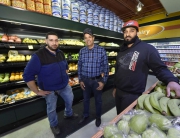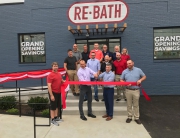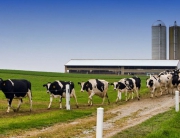Article featured on Lancaster Farming.
Are poultry farms small businesses?
The federal Small Business Administration has been saying yes, but now its internal oversight office is saying maybe not.
The answer could determine whether chicken farmers qualify in the future for a program that guaranteed $1.8 billion in poultry loans between 2012 and 2016.
In a March 6 report, the agency’s inspector general’s office said that the integrators that contract with the farms controlled management so heavily that the farms were, by the agency’s definition, affiliates of the integrators.
When affiliated with these much larger companies, the farms were too large to qualify for the small-business program.
The Small Business Administration pushed back against the report on Monday, saying the farms met the criteria in effect when the loans were made.
The agency said it will continue to honor the loan guarantees it’s already made for poultry farms.
The loan program in question, called 7(a), isn’t exclusive to agricultural projects, though farms have been able to meet its requirements in the past.
The 1,500 poultry farm loans made between 2012 and 2016 formed the majority of 7(a) ag loans during that time.
The program offers government-backed guarantees of loans up to $5 million for small businesses’ startup, expansion, equipment purchase and other costs.
Basically, the Small Business Administration promises the bank a percentage of the loan if there’s a loss.
If all goes well, the agency doesn’t have to step in, said Lyle Hosler, vice president of EDC Finance Corp. in Lancaster, Pennsylvania.
Hosler’s group is an economic development company, not a bank, so it doesn’t use the 7(a) program.
The company does have access to another Small Business Administration loan program, but EDC rarely uses it for agricultural loans because the state offers more suitable programs, Hosler said.
Still, the 7(a) program is a good fit for agriculture, said Ed Elfmann, senior vice president for agricultural and rural banking policy at the American Bankers Association.
The Small Business Administration’s loan limits and available funding are much greater than those available through the USDA Farm Service Agency.
And farmers almost never default on these loans, so “our bankers love them,” Elfmann said.
The agency couldn’t confirm which states those farms were in, but Elfmann said it’s quite possible that the loans have been used in the Mid-Atlantic region.
AgChoice Farm Credit and Fulton Bank said they rarely or never use the 7(a) program.
Elfmann has asked bankers to let him know if the Small Business Administration starts shooting down their requests for agricultural 7(a) loans.
So far, no one’s called.
To determine whether poultry farms might not be eligible for 7(a) loans, the inspector general’s office reviewed 11 poultry grower loans approved for the program.
In a contract growing situation — the predominant way poultry is raised in the United States — farmers typically provide the house, utilities and labor, while the integrators supply feed, technical supervision, veterinary care, flock transportation and a market.
During the period covered in the report, the Small Business Administration was relying on a 1993 decision about poultry grower contracts that the inspector general’s office said “did not consider the full universe of controls in place over the grower.”
That rubric became moot in 2016 when some of the tests for affiliation were changed, the report said.
It’s not clear why the inspector general office’s looked at poultry, but if the view of the inspector general’s office takes hold, Elfmann is concerned that the eligibility of swine and other agricultural projects could also be questioned.
He said he’s looking forward to a House Small Business Committee hearing on ag lending that’s being planned for the near future.
Poultry could be a big topic at the hearing, he said.
For more information about EDC Finance’s SBA offerings, please Click Here







Recent Comments